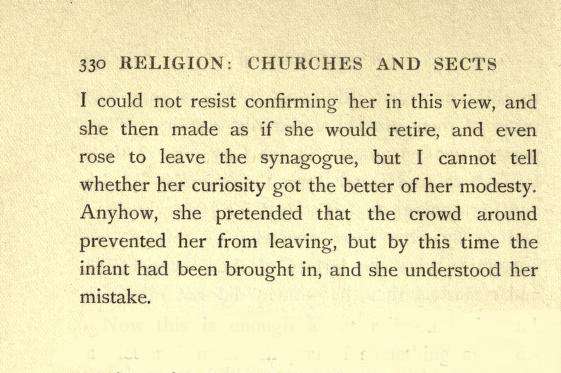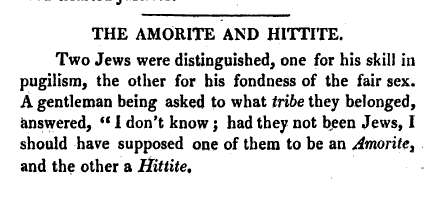Here's a guest post consisting of a very interesting interview with Rabbi Avi Shafran conducted by Baruch Pelta. Below is the interview transcript.
I will post another post shortly which will give some of the background info regarding the Mendelssohn article published in the Jewish Observer nearly 25 years ago, which may or may not be known to readers (
update: see
this post for some of that background, as well as links to the relevant articles).
This interview was conducted in Rabbi Shafran’s office at Agudath Israel of America’s Rabbi Moshe Sherer Headquarters on August 28, 2009. Rabbi Avi Shafran is the director of public affairs for Agudath Israel of America. At the time of this interview, Baruch Pelta was an undergraduate student in Judaic Studies at Touro College. He is currently a graduate student in the same subject at Brandeis University. He blogs at Baruch's Thoughts.
Baruch Pelta: The Mendelssohn article is what I'd like to focus on if I may.
Avi Shafran: Sure.
BP: So what I was wondering is - firstly, why did you write that article? In other words, what inspired you to write that article?
AS: Well, actually I was asked to - by the Jewish Observer. I'd written an article a bit earlier on - a few months earlier - about Abraham Geiger, who was a Reform leader in the 19th century. And obviously that article was - well I guess if one wanted to characterize it uncharitably they'd say it was triumphalist, in the sense that it contrasted his words with things Rav Hirsch said about the same time. The two knew each other, actually, and Abraham Geiger spoke of his trust in the German Reich, and his hope for the future. Rav Hirsch was very reserved and reluctant to put trust in a government, as was borne out to be a wise and certainly a far-seeing approach. Geiger was very different, and, of course, Hirsch represented what ended up persevering and growing. Geiger, you know, sort of made fun of [traditional Judaism] and said things that were disparaging of frum Jews. So I pointed that out - I think the article was called "Abraham Geiger, Where are You?" or something like that. It was addressed to him and said, you know, “Look at the world in front of you and see this thriving Jewish world, one you never imagined would be here today. And as far as your beloved Germany, you know, you don't want to know what happened with that. That kind of an article.
So obviously it wouldn't have raised any hackles within the Orthodox community - it may have raised a few in the Reform (I have no idea, I never heard any response to it). But after that article was published, Rabbi Wolpin called me and asked me if I would write one about Mendelssohn. I said, "Why?" He said "I don't know. I just think it would be a nice follow-up." I said, "Well it's going to be a very different kind of article, because Mendelssohn was not a Geiger. Mendelssohn was essentially an observant Jew. I think he was also misunderstood, misrepresented in many ways, and, you know, are you sure you want such an article? I'm going to write whatever my research yields and I find to be accurate. Geiger was an open-and-shut case, but Mendelssohn was much more of a subtle, complex personality. Not that I'm a historian or expert, but I hope I've read enough about him to realize that, you know, he wasn't such a simple person. He was essentially an observant person, despite what happened to his family and his students.”
So Rabbi Wolpin said, "Write it, and we'll see what happens with it." So I wrote it just as I called it, as I saw it, I did my research. He read the article and, while I didn't put any pressure on him to accept it, he accepted it – and presumably showed it to his editorial board, which accepted it.
Its theme was that there was a subtle problem with him [Mendelssohn] involving his attitude toward the Torah authorities of the time, with whom I guess he may have thought of himself as on the same level as – even though he wasn't a rabbi and certainly not a halachic authority. But he was a brilliant man.
So they accepted the article, they published it, and I think what made it stick in the craw of a lot of people was the fact that many [frum] people have a visceral, automatic reaction to the name Mendelssohn - for whatever reason. Rabbi Wolpin told me afterward was that he thinks it was a mistake for them to put in a photograph of him [Mendelssohn]. It was in fact a prominent photograph, I think maybe it was facing Rav Hirsch or something like that - there was some sort of a juxtaposition. And a photograph of him altogether - they don't generally put in photographs of people that are not intended to be put up on a wall in a frum house and, you know, venerated. So that may have made it prominent, stick out more. Whatever the reason was, there obviously was a strong firestorm of upsetness at it. Then others also created a “counter firestorm” of their own [defending the article]. What happened afterwards was that, I think, the Moetzes Gedolei HaTorah met on the issue. I wasn't with the Agudah at the time. I was living in Providence, Rhode Island, a rebbe in the high school there. So I was totally out of the firestorm. I looked at it with befuddled bemusement, from a distance.
Once, I called to speak with Rabbi Sherer about an unrelated issue and his secretary picked up. She says, "How are you weathering it? How are you holding out?" and I couldn't even understand what she was talking about. I said, "What?" Here [in NY], obviously, it was roiling much more than in Providence, Rhode Island at the time. But there was a Moetzes Gedolei HaTorah meeting – that is [where] the buck stops when it comes to Agudah publications – and they decided that the Agudah – or the Jewish Observer – had to put in an apology for having published it. I don't think it was quite a retraction. I don't think it even talked about the substance of the article so much. I think it was worded, "We apologize for having published this piece, it was an editorial error."
That was fine with me. By the way, at that meeting, I understand, there wasn't a unanimous decision; there definitely were great people who felt that it [the article] wasn't objectionable -- even if it may have a mistake for the J.O. to do it (which they may or may not have thought), they didn't take issue with the substance of it. But that's neither here nor there. Afterwards Rabbi Schwab Zt"l wrote a piece where he did take issue with the substance of the article, and you know, obviously he's an authority, he takes whatever position he feels, and he had a very different picture of Mendelssohn than I had, or I even have today. You know, with all due respect to him, I'm not sure how much of what he wrote – if we went back in time -- would be borne out by what we'd see. Neither of us was there when Mendelssohn was alive, so it's certainly hard to say. But I must say, I accepted their position, of course. I had no input in it anyway, but I was very happy to be a subject of such, you know, discussion. (Laughter)
BP: I was told that you actually asked
reshus from Rav Gifter before you published that article.
AS: No.
BP: Not true. Okay.
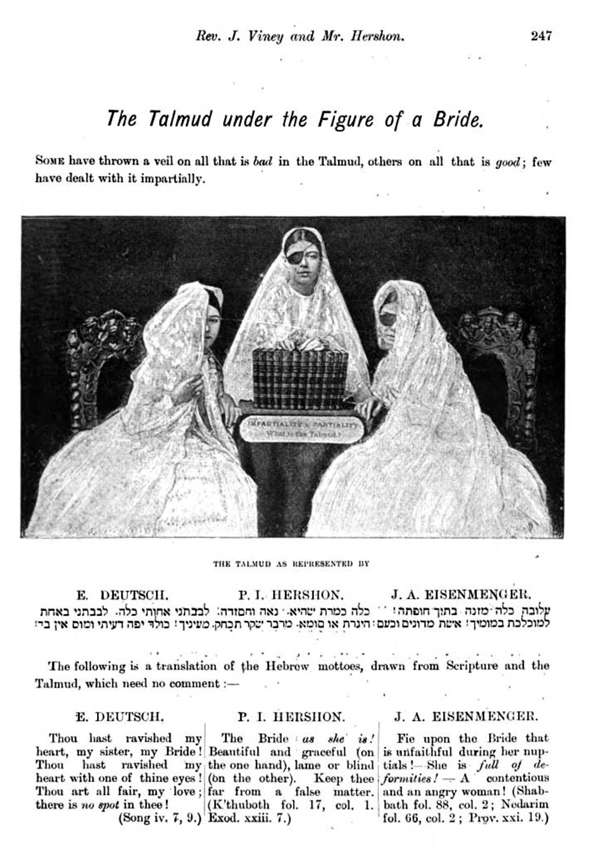
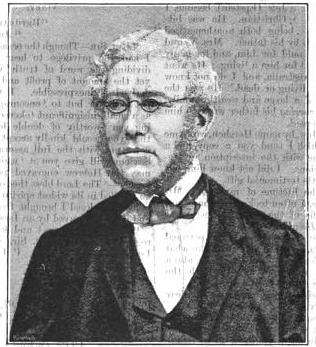

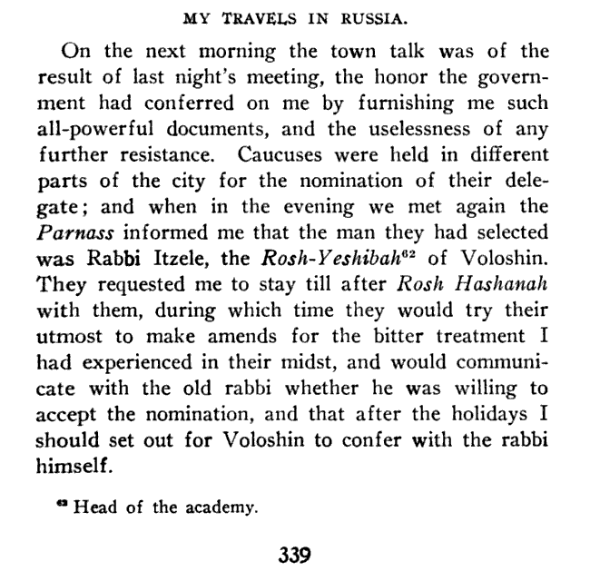

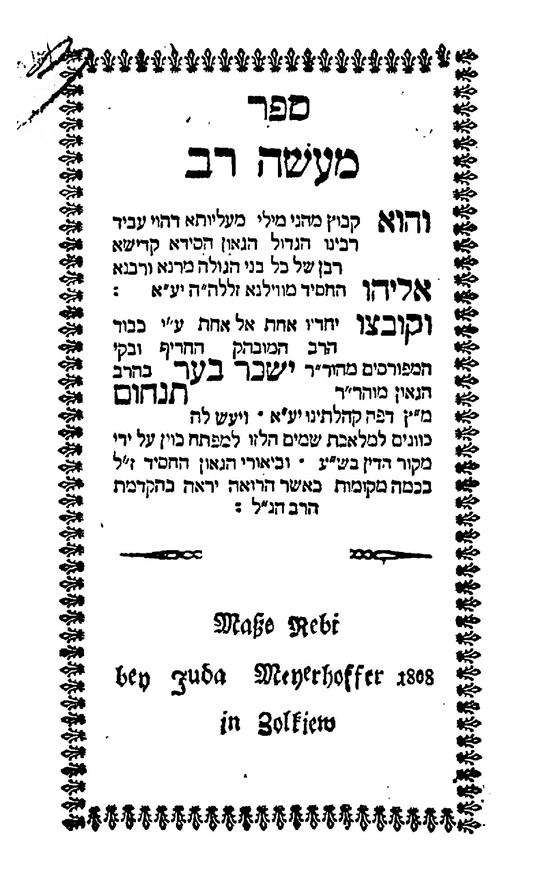
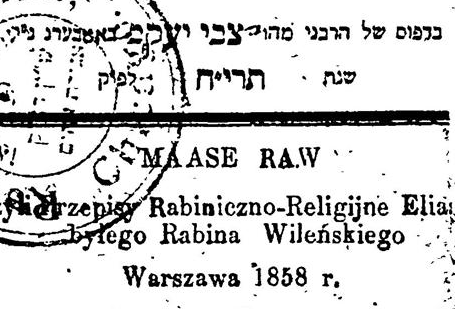
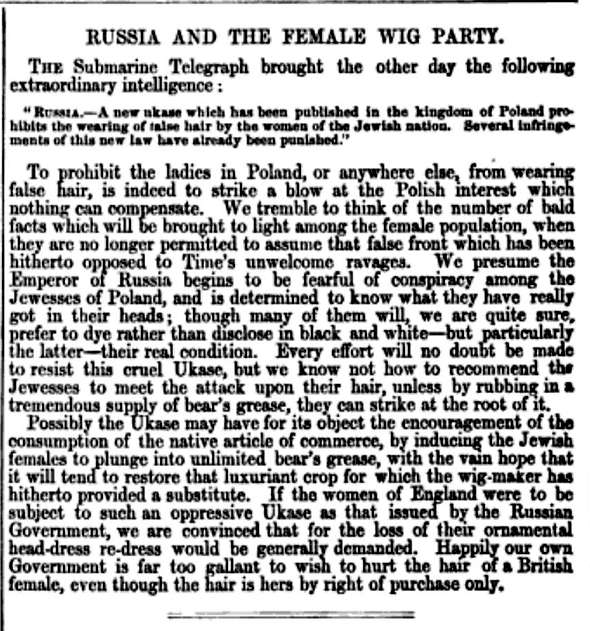
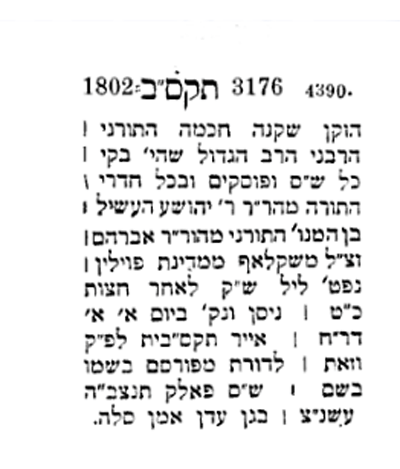

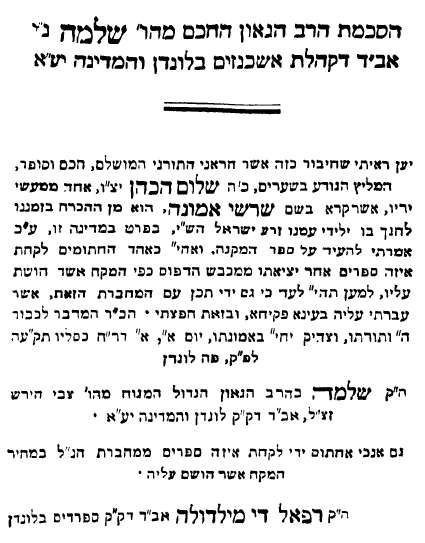
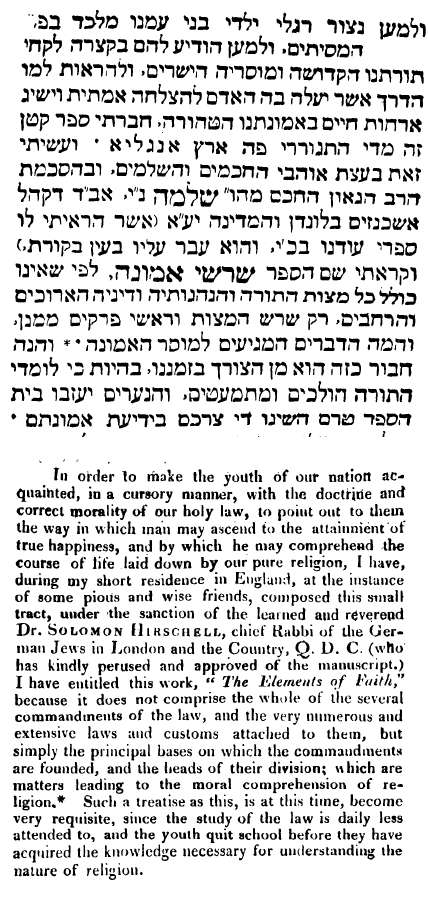
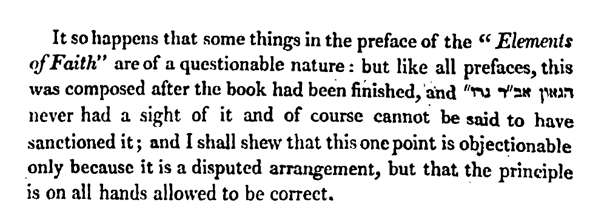

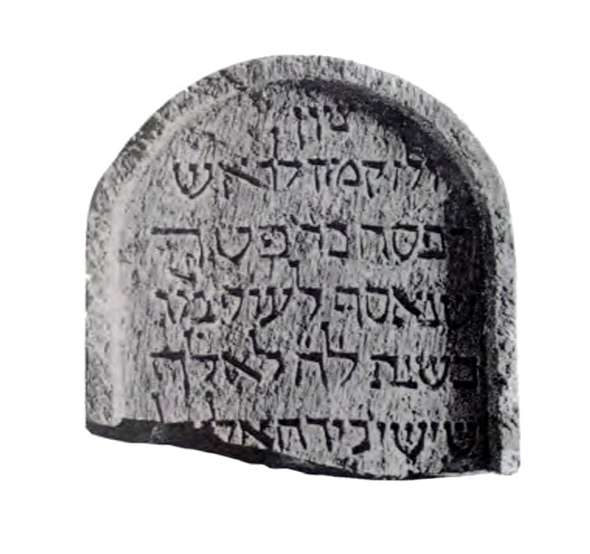




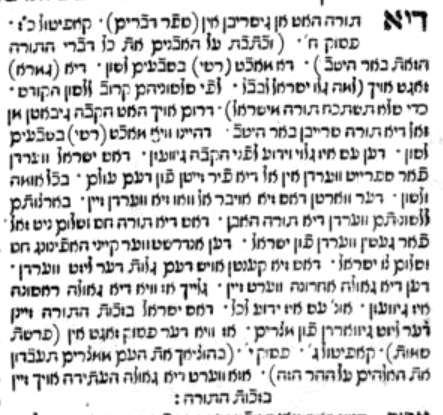
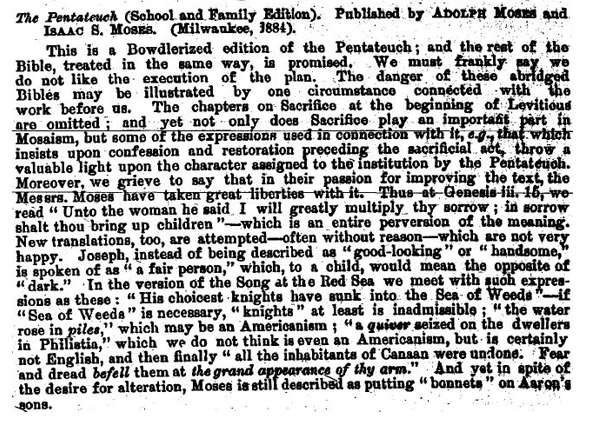
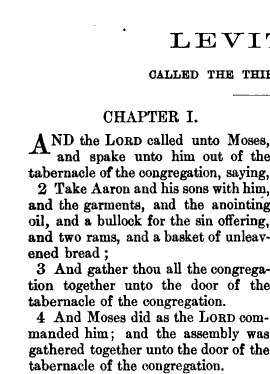

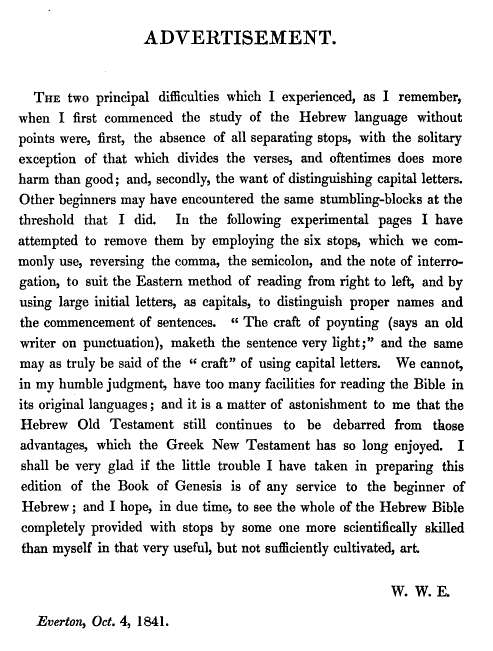
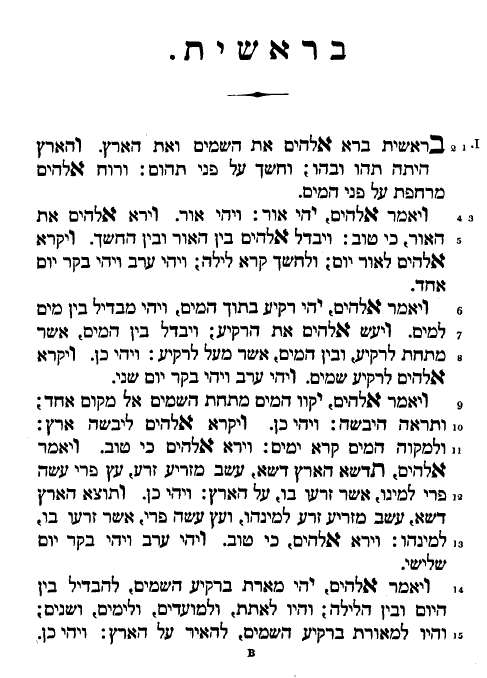

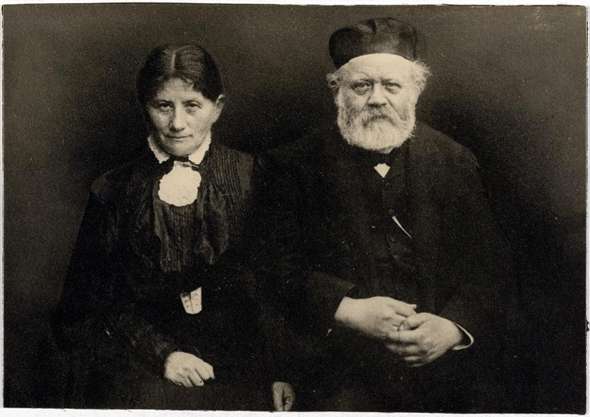
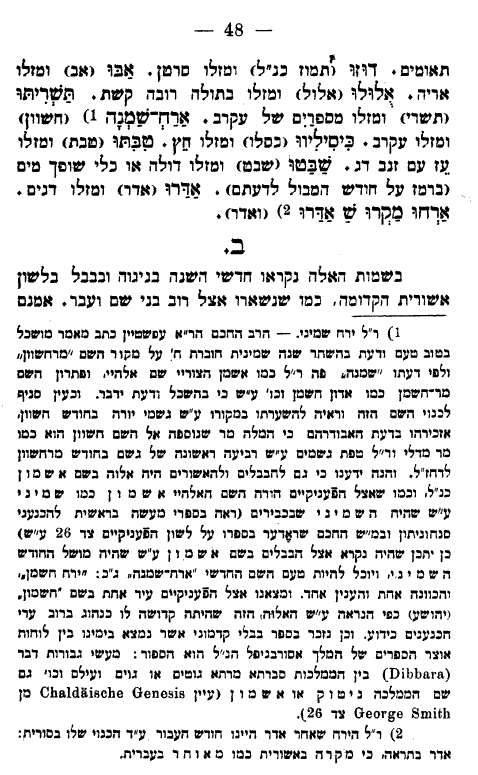

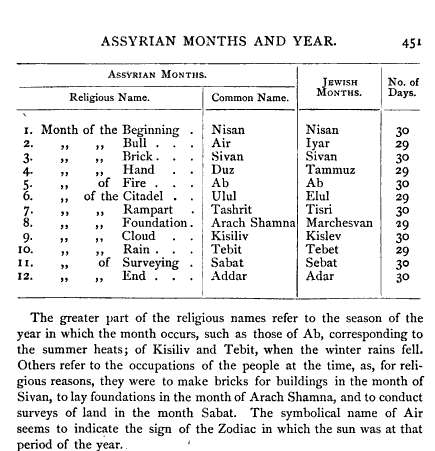

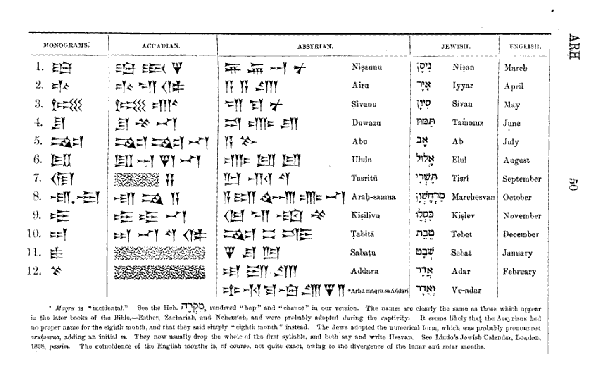

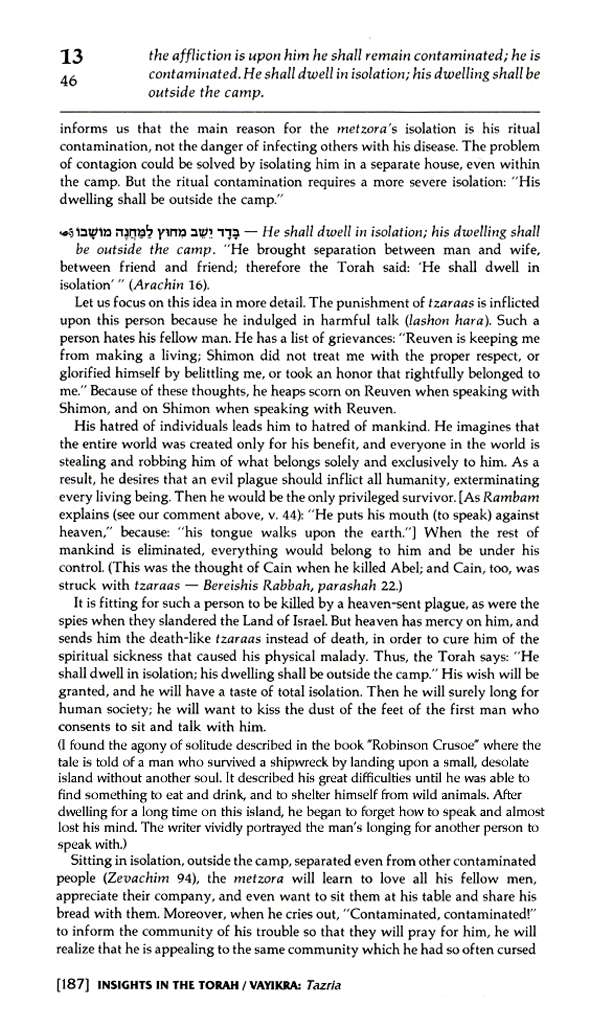 Except actually that's not what the page looks like. The remark about Robinson Crusoe—"I found the agony of solitude described in the book "
Except actually that's not what the page looks like. The remark about Robinson Crusoe—"I found the agony of solitude described in the book "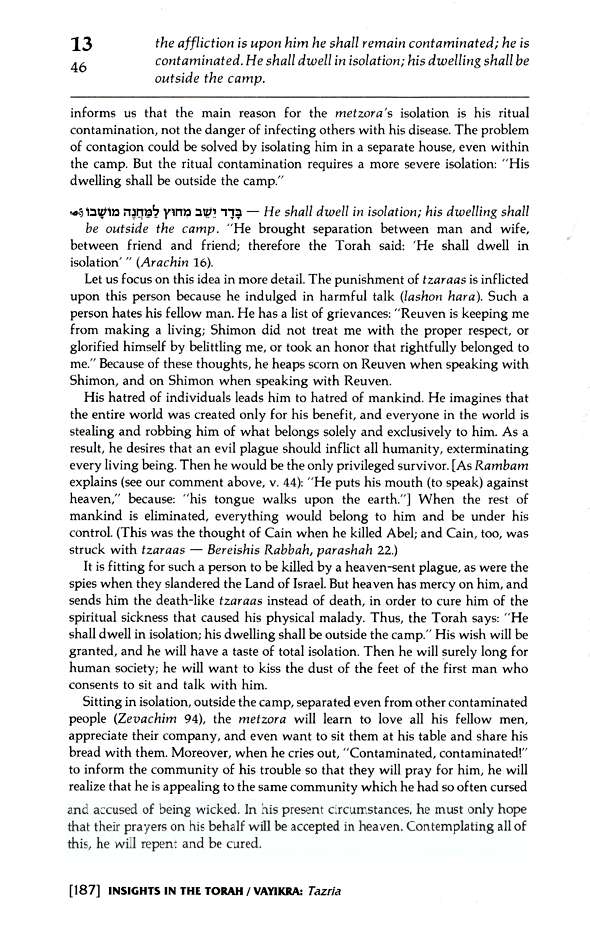 And here is the original commentary in
And here is the original commentary in 
 Incidentally, one of the cool things about Google Books is seeing something like this in
Incidentally, one of the cool things about Google Books is seeing something like this in 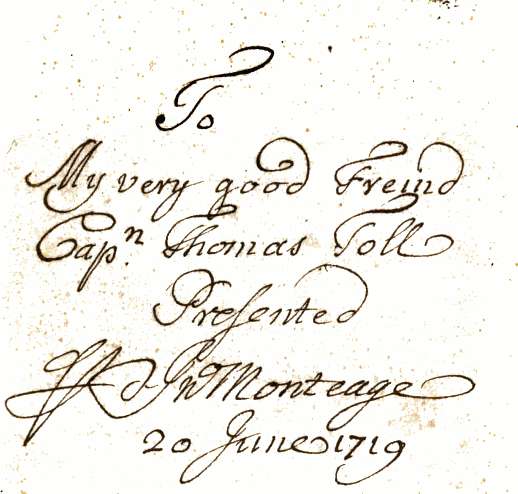 It should also be noted that in novels were in very ill repute in the 19th century (and the 18th). They were disliked by pious people of all faiths, and also by many non-pious but serious people. Novels were widely regarded as imagination gone amok, liable to arouse impious and impractical thoughts; a waste of time. Furthermore, very often novels were written as if they were real, using various literary devices to give that impression.
In the Chasam Sofer's ethical will written to his family in 1839 he commands that
It should also be noted that in novels were in very ill repute in the 19th century (and the 18th). They were disliked by pious people of all faiths, and also by many non-pious but serious people. Novels were widely regarded as imagination gone amok, liable to arouse impious and impractical thoughts; a waste of time. Furthermore, very often novels were written as if they were real, using various literary devices to give that impression.
In the Chasam Sofer's ethical will written to his family in 1839 he commands that 

